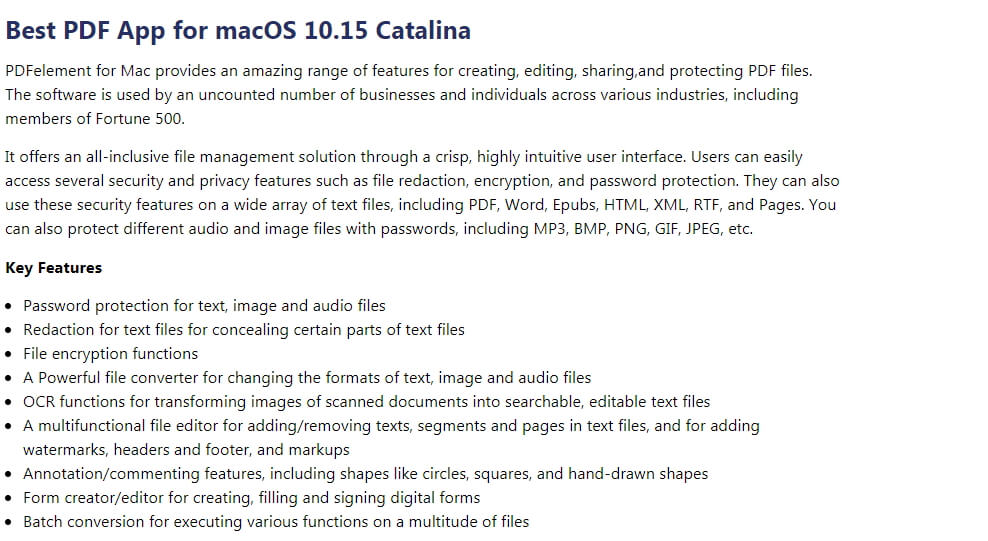 Home > macOS Tips and Tricks > How to Fix FaceTime Not Working on macOS 10.15
Home > macOS Tips and Tricks > How to Fix FaceTime Not Working on macOS 10.15FaceTime is a handy communication tool that allows us to have close-up and intimate conversations with our friends and loved ones. Moms away from home use FaceTime to send kids goodnight kisses, fashion buffs use it to spread the word about upcoming trends, etc.
But the excitement of hitting up an important conversation with a loved one might thaw when you need to fix facetime errors on Mac OS 10.15 such as activation errors, logging errors, ringing errors, muted audio, or poor connection. However, this article outlines easy ways to fix facetime problems on macos 10.15.
How to Fix Facetime for macOS 10.15 Not Working
Problem #1: Mic or Camera not Working
Your mic or camera might fail to respond when FaceTime is up and running.
To fix camera or mic issues on FaceTime on Mac OS 10.15
1. First, quit FaceTime and then test your camera and mic in other applications. If they don’t work, then the problem isn’t with FaceTime, but if they do, then go to the next step.
2. Reopen FaceTime, and check the Video menu to confirm you’ve selected the right camera and microphone. If that doesn’t resolve the issue, then proceed with the next steps.
3. Restart your mac. Go to Apple menu > Restart.

Problem #2: FaceTime Freezing or Crashing
FaceTime might suddenly stop working due to glitches.
The easiest solution for this is restarting the app.
1. Quit FaceTime, and then reopen it.
2. Alternatively, you can quit through the task manager by pressing “Option + Command + Esc” keys simultaneously, and then clicking on the FaceTime icon on the Force Quit window that pops up, and then clicking “Force Quit”. Reopen the app afterward. If this doesn’t resolve the issue, then you can try restarting your device.
3. To restart your Mac, go to Apple menu > Restart.
Problem #3: FaceTime Login Errors
FaceTime is designed to sign you in automatically after you signed in successfully the first time. But you may run into problems signing in even after you signed in successfully in the past.
There are many methods to FaceTime sign-in errors on Mac OS 10.15 based on the root cause of the problem.
1. Check to see if there’s a problem with your internet connection. Open your Apple System Status page to check if there’s any temporary network outage affecting FaceTime.
2. Make sure your time and date are correct. Your Mac’s date and time settings affect your internet connection. Go to “Apple menu > System Preferences > Date & Time” and ensure the time, date, and time zone are all correct. You may need to deselect the “Set date and time automatically” option to be able to make manual settings.
3. Make sure you’re using the correct Apple ID and password. Open the Apple ID account page and sign in with the Apple ID. If its the right Apple ID, then go to “Preferences” in the FaceTime app, select the “Settings” tab, and then click “Sign Out”. Next, sign in again with the Apple ID you used on the Apple ID account page.
Problem #4: Pending FaceTime Updates
Updates pending installation meant to fix FaceTime problems on MacOS 10.15 might interfere with FaceTime’s operations. Ensure your FaceTime is updated so that doesn’t become a source of problems.
To check for FaceTime updates,
1. Go to “Apple menu > System Preferences > Software Update”, and then scroll down to FaceTime updates.
2. Install any pending update, and then quit and re-start FaceTime.
Problem #5: Poor Call Quality
Your FaceTime call might get choppy because of a poor or congested internet connection.
To fix poor call quality issues, check to see if there’s a problem with the internet connection on both ends. To check on your end, open your Apple System Status page and check if there’s any temporary network outage affecting FaceTime.
Problem #6: Interference from Third-Party Software
Glitches in other apps may spill over into FaceTime. The normal operations of some apps can also interfere with FaceTime.
To check to see if a FaceTime problem is caused by interference from other apps, force-quit some running apps, especially those that work with large memory space.
To force quit apps,
1. Open the task manager by pressing “options + Command + Esc” keys at the same time, and then click on the app you want to force quit, and then tap “Force Quit” on the next window that pops up.
Also, disable third-party network software such as VPN, security, antivirus, etc, because they can block the network ports used by FaceTime.
If you’ve set up a firewall, enable the following Ports for FaceTime:
80 (TCP)
443 (TCP)
3478 through 3497 (UDP)
5223 (TCP)
16384 through 16387 (UDP)
16393 through 16402 (UDP)
Problem #7 Wrong DNS Configuration
Another network related-related issue, a wrong DNS configuration for FaceTime can give rise to FaceTime problems. Try using Google’s public DNS or OpenDNS, or Cloudflare.
To set Google’s public DNS as your FaceTime’s DNS,
1. Go to “Apple Menu > System Preferences > Network”.
2. Next, select “YOUR NETWORK’S NAME > Advanced > DNS”.
3. Next, click the “+” button and add Google DNS by entering 8.8.8.8 and 8.8.4.4, and then clicking “OK > Apply”.

Problem #8: Incorrect Phone Number or Email Address
Due to wrong settings, you may get an error message saying a phone number or email address is incorrect when you try to make a FaceTime call.
To manage your FaceTime contact list,
1. On the open FaceTime window, select “Preferences”, and then open the drop-down menu next to “Start new calls from”, and make sure you’ve entered the correct email address or phone number you want to connect with. This contact will then be the default number that FaceTime calls first.
Problem #9: FaceTime Disabled via Restrictions
Parental control restrictions on your Mac might prevent FaceTime from running normally. If you’re having issues with FaceTime, disable all parental controls temporarily to ensure they’re not the source of the problem.
To disable parental controls, go to “Apple > System Preference > Parental Controls”, and then disable the restrictions.
Problem #10: FaceTime Not Ringing When Somebody Calls
You may be embarrassed to find that you missed multiple FaceTime calls while your Mac was close by and the ringing volume was fully turned on. This might happen because the “Push” feature has been disabled in your Mail settings.
To enable the Push settings on your Mail settings,
1. Go to “Settings > Password & Accounts”, and activate the “Push” option next to “Fetch New Data”. (If it was activated all along, deactivate and then reactivate it).

Also, ensure your Mac’s ringing volume is turned up, and that the Do Not Disturb settings found at “Settings > Do Not Disturb” is not active for phone calls.

Learn more about PDFelement for Mac >>
Free Download or Buy PDFelement right now!
Free Download or Buy PDFelement right now!
Buy PDFelement right now!
Buy PDFelement right now!
 100% Secure |
100% Secure |

Audrey Goodwin
chief Editor
Comment(s)